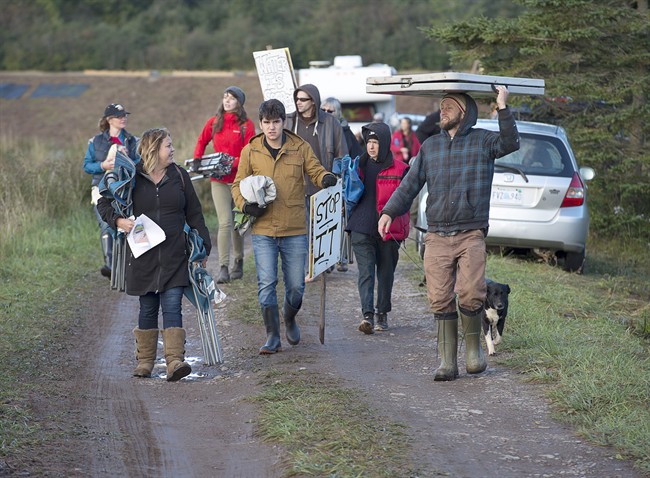Nova Scotia has decided to pull a controversial legal argument in the ongoing battle over the Alton Natural Gas Storage project.

READ MORE: Nova Scotia premier to apologize to Mi’kmaq for ‘conquered’ people law brief
The province sent a letter to Justice Suzanne Hood Tuesday, announcing it would withdraw part of the legal argument which suggested the Sipekne’katik First Nation are a conquered people.
In November, government lawyer Alex Cameron argued the province didn’t have a duty to consult with the Sipekne’katik First Nation because the duty to consult extended only to “unconquered people,” and the band’s submission to the Crown in 1760 negated its claim of sovereignty and negated the government’s constitutional duty to consult.
Cameron was removed from the case in December and replaced by provincial Crown attorney Ed Gores.
READ MORE: Nova Scotia Crown lawyer in Alton Gas appeal removed from the case: minister
The brief was presented as part of the province’s case in a legal challenge of the approval of the natural gas project. The Sipekne’katik First Nation argued the province failed in its duty to consult with them on the project.
In the letter sent to Hood, Gores says he “wishes to clarify” the province’s position on the duty to consult. The letter withdraws four paragraphs from the legal argument and removed parts of four others.
READ MORE: Indian Brook First Nation challenging Alton natural gas storage project
In particular, paragraphs 76 and 78 of the legal document — which held the “unconquered peoples” argument — were removed.
The letter also withdraws paragraphs 93 and 94, which say there are different treaties for different groups, and that the Sipekne’katik had different treaty rights from other First Nations because they had “treaties of submission” with the British.
When the controversy erupted in November, Naiomi Metallic, chair of aboriginal law and policy at Dalhousie University, told Global News that the arguments put forward by Cameron were “legally and factually wrong.”
“Native people in Canada were never conquered and it’s a racist idea to say we’re conquered,” she told Global News.




Comments